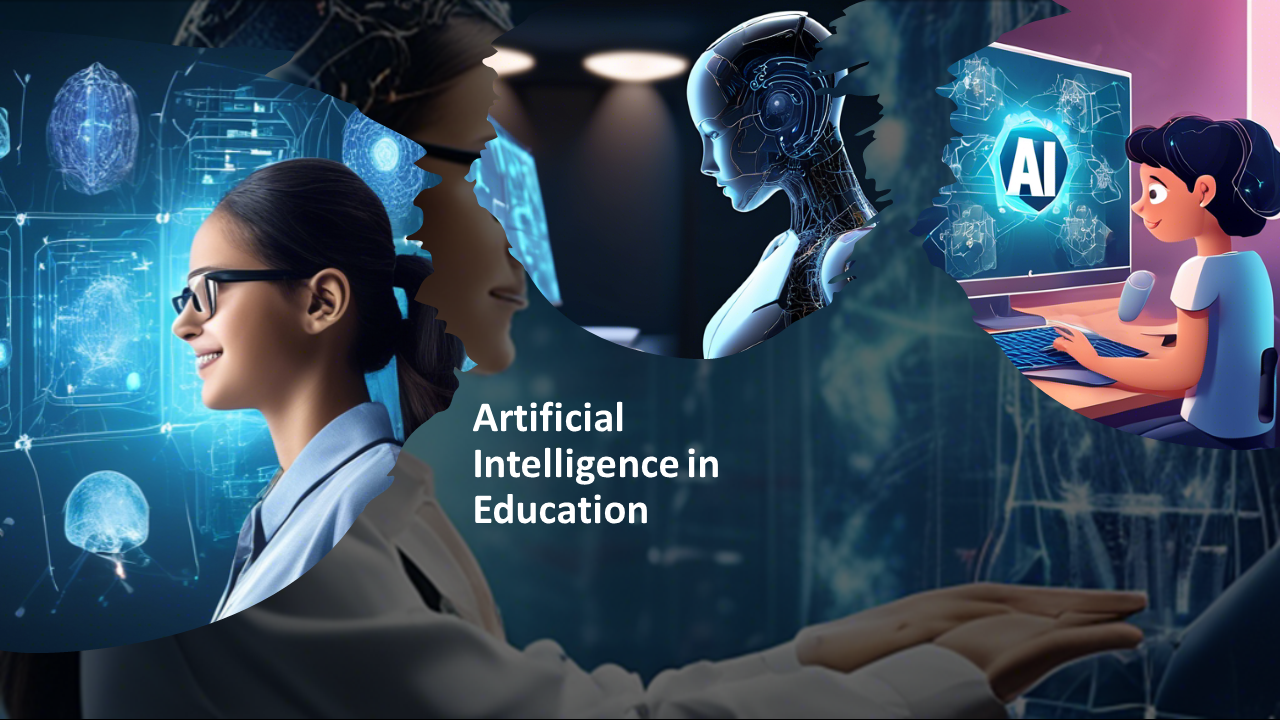LetsTalkAVbyAlexis Series: Episode 6:Designing a Successful Auditorium: Where Acoustics, Technology and Intent Converge


Artificial intelligence (AI) has emerged as a transformative force in the field of education, revolutionizing traditional teaching and learning practices. By harnessing the power of AI, educational institutions can deliver highly personalized and adaptive learning experiences to students, enabling them to achieve better outcomes and acquire knowledge more effectively.
One of the key applications of AI in education is the development of AI-powered content and learning platforms. These platforms leverage advanced machine learning algorithms to analyze vast amounts of data and gain insights into students' individual learning needs, preferences, and abilities. By understanding the unique characteristics of each student, AI algorithms can generate tailored learning materials, including readings, exercises, and quizzes, that align with their specific requirements. This personalized content promotes engagement, deepens understanding, and allows students to progress at their own pace.
Moreover, virtual teaching assistants powered by AI are gaining popularity in educational settings. These intelligent assistants can provide students with personalized support, guidance, and feedback, enhancing the learning experience. Virtual assistants can interact with students through natural language processing and machine learning capabilities, addressing their queries, clarifying concepts, and offering assistance 24/7. By leveraging AI, educational institutions can extend their support beyond the physical classroom, ensuring that students have access to immediate and personalized assistance whenever they need it.
Another significant impact of AI in education is the automation of grading systems. Traditionally, educators spend a considerable amount of time grading assignments and assessments, limiting their ability to provide timely feedback and engage with students. AI-powered grading systems, equipped with natural language processing and pattern recognition algorithms, can automate the evaluation process. These systems can assess subjective responses, such as essays and open-ended questions, with a high degree of accuracy. By automating grading, educators can focus on more meaningful interactions with students, offering personalized feedback and guidance to foster their growth and development.
AI also enables the creation of smart content that adapts to students' individual needs and learning styles. By analyzing student performance data, AI algorithms can identify areas where students are struggling or excelling. Based on these insights, the learning content can be dynamically adjusted to provide additional explanations, examples, or practice exercises, ensuring that students receive targeted support where they need it the most. This adaptive and interactive content facilitates a personalized learning journey, keeping students engaged and motivated throughout their educational experience.
Predictive analytics, powered by AI, plays a vital role in identifying students at risk of falling behind or disengaging from their studies. By analyzing historical data on student performance, behavior, and engagement, predictive analytics models can detect early warning signs and provide timely interventions. Educators can leverage these insights to design targeted interventions, offer additional resources, or provide individualized guidance, helping struggling students overcome challenges and achieve academic success.
However, the integration of AI in education also raises important ethical considerations. Safeguarding student data privacy and security is of utmost importance. Educational institutions must ensure that proper protocols and safeguards are in place to protect sensitive student information. Additionally, the potential for bias in AI algorithms must be carefully addressed to ensure fairness and equity in educational outcomes.
In conclusion, AI is reshaping the landscape of education by providing personalized learning experiences, virtual teaching assistants, automated grading systems, adaptive content, and predictive analytics. The implementation of AI technologies in education holds tremendous potential for enhancing student engagement, improving learning outcomes, and enabling educators to deliver more effective instruction. However, it is crucial to approach the integration of AI with careful consideration of ethical implications and to maintain a balance between AI-driven innovations and the invaluable role of human educators.
With over 20 years of experience in the AV and ELV industries, I specialize in AV system design, installation, management, and integration across diverse sectors, including corporate, education, sports, healthcare, hospitality, and government. My career began in 2003 with the AV team at a 5-star hotel in Lebanon, where I developed a passion for AV systems.
I hold certifications as a Project Management Professional (PMP) from PMI, as well as CTS-D and CTS-I from AVIXA, blending technical expertise with strong project leadership. I have extensive experience deploying technologies from leading manufacturers such as Crestron, Extron, Biamp, and many others, while managing vendors and ensuring seamless integration.
Currently, I am part of BLINQ, a division of IMAR Trading and Contracting in Qatar, where I serve as the ELV Projects Manager, focusing on ELV systems and immersive AV solutions. I am committed to continuous learning, staying ahead of industry trends, and mentoring emerging professionals to elevate the AV field
Xchange Advocates are recognized AV/IT industry thought leaders and influencers. We invite you to connect with them and follow their activity across the community as they offer valuable insights and expertise while advocating for and building awareness of the AV industry.



We and selected partners, use cookies or similar technologies as specified in the cookie policy and privacy policy.
You can consent to the use of such technologies by closing this notice.
Please sign in or register for FREE
If you are a registered user on AVIXA Xchange, please sign in